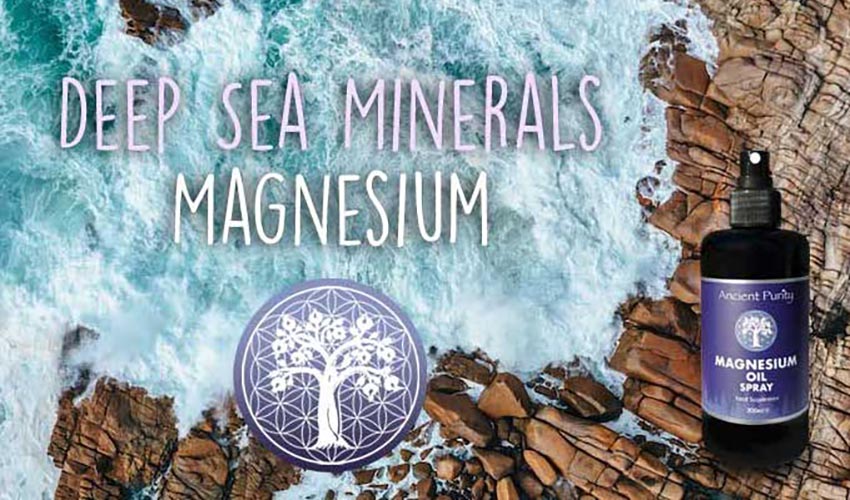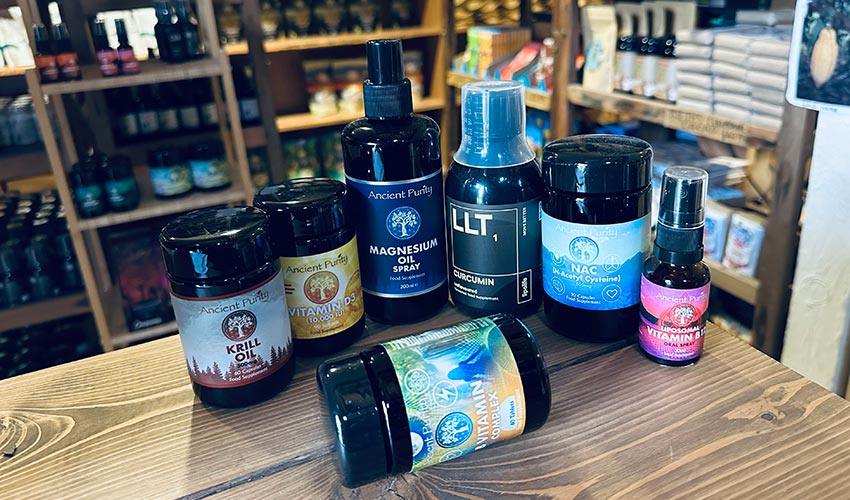Comfort and Freedom over Pins & Needles and Peripheral neuropathy
Commonly described as a "pins and needles" sensation, paresthesia can affect various parts of the body. A lot of people brush it off and think it's just part of being alive, well yes but if it's happening too often it could be a sign you need to make some changes. As I said the actual official name is Paresthesia, and technically it is classified as a tingling sensation in the feet and other extremities, is closely associated with peripheral neuropathy, which involves weakness and pain resulting from nerve damage. Peripheral neuropathy is a broad term referring to any disruption of the peripheral nerves, while paresthesia specifically refers to the numbness and tingling, particularly in the feet. Temporary numbness may occur after sitting or sleeping in the same position for a prolonged period, but chronic paresthesia develops over an extended time. Symptoms can include tingling, numbness, itching, or even a burning sensation. Additional pain and symptoms often depend on the location of the affected area and the underlying cause of the paresthesia. Paresthesia is typically caused by nerve compression or damage and is often a symptom of various conditions affecting the nerves and the nervous system. Temporary paresthesia commonly arises from inactivity, where prolonged pressure is applied to a specific nerve or group of nerves.
So do you get it often? are you waking up with it? does it come on easily? If yes on any of those I recommend you make some simple changes that are totally natural. Just get back to total body comfort and freedom over pins and needles. I once myself believed I had peripheral neuropathy, maybe I even did. It was a terrifying few weeks, like treading on electric spikes. I had no idea what it was, I had all the symptoms of peripheral neuropathy. Imagine I was running Ancient Purity and had this, what a terrible advert. I spent ages researching, and this was post online censorship of all things natural health, just to make it even more difficult. Anyway I discovered it was a Vitamin B1 deficiency, why did I have that? well a new member of staff had started that was making 7 cups of tea a day and I kept finding them on my desk and drinking. Standard tea depletes Vitamin B1, I cut the tea out, and swallowed a couple of our B Vitamin Complex daily for a few weeks. Before the weeks passed it had already gone. I drink a couple of cups of tea a day now. Anyway this article I won't just cover Vitamin B1 and tea drinking. There's a number of things that could affect you and you may need to change. Hopefully it's just simple and quick. Lets dive in...

Let's Start Simple
Water
Drinking pure, chlorine- and fluoride-free water can play a crucial role in supporting the body's overall health and may contribute to reducing the occurrence of pins and needles. Proper hydration is essential for maintaining the optimal function of the nervous system, as water facilitates the flow of nutrients and oxygen to nerve cells while aiding in the removal of toxins. When water is free from potentially harmful chemicals like chlorine and fluoride, the body is better equipped to maintain cellular integrity and support healthy nerve conduction. Chlorine and fluoride, commonly found in treated water supplies, may interfere with nerve function over time. These chemicals can disrupt the delicate balance of minerals in the body, potentially contributing to inflammation, oxidative stress, and impaired circulation—factors that can exacerbate nerve irritation and contribute to the sensation of tingling or numbness in the extremities.
By choosing to drink pure water, you help reduce the toxic load on your system, encouraging better circulation, enhanced cellular hydration, and improved nerve health. In a holistic sense, consuming clean, chemical-free water supports the body’s natural ability to heal and regenerate. It encourages a state of balance within the nervous system, which is critical for reducing symptoms like paresthesia. As part of a broader approach to wellness, drinking pure water can contribute to maintaining overall health and vitality, allowing the body to function more harmoniously and with greater resilience against nerve-related conditions. I would say consume around 2 to 3 litres (about 8 to 12 cups) of pure water per day for most adults. This can vary depending on factors such as body weight, activity levels, and environmental conditions, but staying consistently well-hydrated is key. If you don't have a filter yet, I use the Gravity Filter here and you don't have to do this but I am a health renegade and I structure water too with a Sacred Geometry Carafe here. But thats me, drinking clean, filtered water will suffice.
Exercise
As I said I'm starting with the obvious thing, but you must have these covered. Exercise will improve cardiovascular health, build muscle, and enhance fitness, it also has profound effects on the nervous system. Which is part of the pins and needles issue. Exercise increases blood flow throughout the body, including to the extremities where peripheral nerves are located. Better circulation delivers essential oxygen and nutrients to the nerves, helping to repair damage and maintain healthy nerve function. Improved blood flow also reduces inflammation, which is often a contributing factor to nerve pain. Research suggests that certain types of exercise can stimulate the growth and repair of nerve fibres. Physical activity promotes the release of neurotrophic factors—proteins that support the survival, development, and function of neurons. Over time, these factors encourage nerve regeneration and may reduce symptoms of peripheral neuropathy.
Regular exercise triggers the release of endorphins, the body's natural painkillers, which help reduce the discomfort associated with neuropathy. Gentle stretching, aerobic exercise, and strength training have all been shown to decrease pain, tingling, and burning sensations in affected areas. Strength training exercises can help rebuild muscle mass, improve stability, and restore coordination. This is particularly important for those who experience neuropathy in the legs and feet, as stronger muscles help support joint function and overall mobility. In the extreme the issue can affect balance and coordination, exercises aimed at improving stability are essential. Balance exercises, such as standing on one foot, heel-to-toe walking, or practicing on a balance board, can strengthen stabilising muscles and reduce the risk of falls. Activities like tai chi and yoga are also excellent for enhancing balance while promoting relaxation and mental focus.
Food
I say this practically every article but I'll say it again... Eat whole foods, organic as best you can, nothing processed, limit sugars. Thats as much enthusiasm as I can muster to say that for the millionth time. In the Vitamin B1 part of this guide I wrote what to avoid that depletes it.

Magnesium the Master Mineral
At Ancient Purity we put Magnesium in our Essentials so it was no surprise during the research that once again it helps something. I never cease to be astounded at the thing Magnesium helps with. Magnesium is an essential mineral that plays a crucial role in numerous bodily functions, including nerve transmission, muscle function, and the maintenance of a healthy immune system. For individuals suffering from peripheral neuropathy or nerve-related conditions, magnesium’s most relevant function is its ability to regulate nerve signals, reduce inflammation, and relax muscles, all of which can help alleviate the discomfort of pins and needles. When magnesium levels in the body are insufficient, nerves can become hypersensitive, leading to symptoms such as tingling, numbness, and pain. A deficiency in magnesium can also impair the body’s ability to repair and protect nerve tissue, further exacerbating the symptoms of peripheral neuropathy.
Magnesium Oil Spray offers a convenient and effective way to increase magnesium levels in the body, especially for those who may have difficulty absorbing magnesium through the digestive system. Magnesium oil spray is applied topically, meaning it is absorbed directly through the skin and into the bloodstream, bypassing the digestive tract and allowing for faster absorption. When sprayed directly onto areas affected by neuropathy, can provide quicker relief as it is absorbed through the skin. The mineral penetrates the tissues and works to calm nerve impulses, reducing the sensations of tingling and numbness. This targeted approach is especially beneficial for individuals experiencing symptoms in specific areas like the feet, legs, or hands. Magnesium has anti-inflammatory properties that help reduce swelling and inflammation around the nerves. Chronic inflammation can worsen neuropathic pain, and by lowering inflammation levels, magnesium oil helps reduce pressure on the nerves and alleviate symptoms. Magnesium helps to relax blood vessels and improve circulation, delivering more oxygen and nutrients to the affected nerves, which supports nerve repair and regeneration. By relaxing both the muscles and nerves, Magnesium Oil can reduce the hypersensitivity that leads to pins and needles. This relaxing effect also helps relieve muscle cramps, which are often associated with neuropathy, providing further comfort and relief.
How to Use Magnesium Oil Spray
- Apply Directly to Affected Areas: Spray Magnesium Oil directly onto the areas where you experience tingling, numbness, or pain, such as the feet, legs, or hands. Gently massage it into the skin to enhance absorption. It’s best to apply it to clean, dry skin for optimal results. Vitally important is if spraying on hands avoid contact with eyes, even on hands Magnesium can sting. Be careful, I've done it.
- Start with a Small Amount: If you’re new to using it, start with a small amount to gauge your skin’s sensitivity. Some people may experience a mild tingling or itching sensation when they first use magnesium oil, especially if they have low magnesium levels. This sensation usually fades with continued use.
- Leave on for 20-30 Minutes: Allow the magnesium oil to remain on the skin for at least 20 to 30 minutes before rinsing it off (personally I never do). This gives your body enough time to absorb the mineral. Some people prefer to leave it on overnight for extended absorption, particularly if they use it before bed.
- Use Daily for Best Results: Consistency is key when using magnesium oil for neuropathy relief. Applying it daily will help replenish magnesium levels in the body and promote long-term nerve health. Over time, regular use can contribute to sustained relief from pins and needles, muscle cramps, and nerve pain.

The Power of Vitamin B1
The Vitamin I was missing... Vitamin B1, also known as thiamine, plays a crucial role in nerve health and energy metabolism. It is essential for the proper functioning of the nervous system, and a deficiency in thiamine can lead to nerve damage, resulting in peripheral neuropathy. Thiamine is vital for nerve signal transmission and communication between the brain and the peripheral nervous system (the network of nerves outside the brain and spinal cord). It helps maintain the health of nerve cells and supports the production of neurotransmitters, which are chemicals that facilitate communication between nerve cells. A deficiency can disrupt this process, leading to symptoms of peripheral neuropathy such as tingling, numbness, and pain. It's required for the production of ATP (adenosine triphosphate), the primary energy carrier in cells. Nerves, like other tissues, need a continuous supply of energy to function properly. Thiamine helps convert carbohydrates into energy, which supports the metabolic processes essential for nerve health. Without adequate energy, nerves may become damaged or dysfunctional, contributing to neuropathic symptoms.
Vitamin B1 has antioxidant properties that protect nerve cells from oxidative stress, a process where free radicals (unstable molecules) damage cells. This protection is particularly important for nerves, which are vulnerable to damage from metabolic stress, toxins, and chronic conditions like diabetes. Thiamine’s ability to reduce oxidative damage can slow or prevent further nerve degeneration. It is involved in the breakdown of glucose and the detoxification of harmful by-products in the body. A deficiency in thiamine can lead to the build-up of toxic substances, such as pyruvate and lactic acid, which can cause further damage to nerves. Thiamine helps prevent this toxic accumulation, supporting nerve health and function.
A deficiency in thiamine can be caused by a variety of factors, including poor dietary intake, certain health conditions, and lifestyle factors. As you know by now mine was excessive tea drinking and I mean standard English Breakfast tea, not Blueberry Tea (I drink that now more often) Anyway tea was the cause for me, but the most common causes of thiamine deficiency are just a general poor diet, low in nutrition, containing processed foods and too much sugars. High alcohol consumption is one of the leading causes of thiamine deficiency. Alcohol interferes with the absorption of thiamine in the intestines and increases the body’s need for thiamine. Alcoholism can lead to Wernicke-Korsakoff syndrome, a condition associated with severe thiamine deficiency and nerve damage, including neuropathy. By the way because I said cut out tea, that doesn't mean switch to coffee, because coffee contains compounds that can interfere with the absorption of thiamine. Drinking excessive amounts of these beverages, particularly without enough thiamine-rich foods in the diet, can contribute to deficiency. So cut those out, if in need of urgent escape get a B1 supplement or if you're still doing ok and want the gentle way out with all the other B Vits we have a Complex here. Oh Also like Magnesium Vitamin B1 and all the B Vitamins have some incredible benefits.

Other Supplements on the Road to Freedom
As you can see I put Magnesium and Vitamin B1 top, but actually it was just using the Vitamin B Complex of ours and cutting out the tea that fixed me. My exercise was always consistent and water is my main drink. But anyway as I cannot stress enough, each of us are different, so I've listed all the other tools here. I don't think any of us need all these, but one of these and that alone could be the solution for someone. Anyway here's the list.
Vitamin B12 is essential for maintaining healthy nerves and protecting the myelin sheath, the insulating layer around nerve fibres that ensures proper nerve function. A deficiency in B12 is one of the most common causes of peripheral neuropathy, leading to symptoms such as tingling, numbness, and weakness, particularly in the hands and feet. B12 helps with nerve repair and regeneration and is crucial for preventing nerve damage caused by deficiencies.
Alpha-lipoic acid is a powerful antioxidant that helps to protect nerve cells from damage caused by oxidative stress. It has been shown to improve nerve function and reduce symptoms of peripheral neuropathy, particularly in individuals with diabetes. ALA also helps improve blood flow, which is essential for providing nutrients to damaged nerves and promoting their healing.
Acetyl-L-carnitine is an amino acid that plays a role in energy production and is known for its ability to support nerve regeneration. It helps reduce pain and discomfort associated with peripheral neuropathy and may help improve the overall function of damaged nerves. Acetyl-L-carnitine also provides antioxidant benefits, which protect nerves from further damage caused by free radicals.
Vitamin B6 is essential for the proper functioning of the nervous system and is involved in the production of neurotransmitters that facilitate nerve communication. Adequate levels of B6 are necessary for nerve health, but too much can actually cause neuropathy, so it’s important to take it within the recommended dosage range. Vitamin B6 can help relieve symptoms of nerve pain, tingling, and numbness.
Vitamin D supports nerve health by helping to reduce inflammation and promoting nerve repair. Low levels of vitamin D have been linked to an increased risk of developing peripheral neuropathy, particularly in people with diabetes. By ensuring adequate vitamin D intake, you can reduce the progression of nerve damage and support the body’s ability to maintain healthy nerve function.
Krill Oil has potent anti-inflammatory properties and can help protect nerve cells from damage. They also support the regeneration of nerve fibres and improve circulation, both of which are essential for managing peripheral neuropathy symptoms. Omega-3s also promote overall cardiovascular health, which is crucial for delivering oxygen and nutrients to damaged nerves.
Curcumin, the active compound in turmeric, is a powerful anti-inflammatory and antioxidant. It can reduce inflammation in the nerves and protect them from oxidative damage, which can lead to neuropathy. Curcumin has also been shown to enhance the regeneration of nerve cells, which may help alleviate pain, tingling, and numbness associated with peripheral neuropathy.
N-Acetyl Cysteine (NAC) is a precursor to glutathione, one of the body's most important antioxidants. It helps protect nerves from oxidative stress and inflammation, both of which can contribute to the development of neuropathy. NAC also supports detoxification, which is vital for individuals who may be exposed to toxins that damage nerves.
L-arginine is an amino acid that helps improve blood circulation by promoting the production of nitric oxide, a compound that relaxes blood vessels and enhances blood flow. Better circulation ensures that nerves receive the oxygen and nutrients they need for repair and regeneration, making it particularly useful for managing peripheral neuropathy symptoms, especially in those with diabetes.
I hope you have learned something about freedom over Pins & Needles and Peripheral neuropathy. It could be such a simple change or you may have to look at a few things. One message I really want to deliver here is don't settle!. Don't accept little annoyances in the body, don't accept things to not be comfortable or not as good as they were. Choose total health and happiness, if you are getting pins & needles too much don't just put up with it. Make some changes and just feel good all the time, then help others. Let's make life fun. Be well my friend and Blessed Be, Tom






















